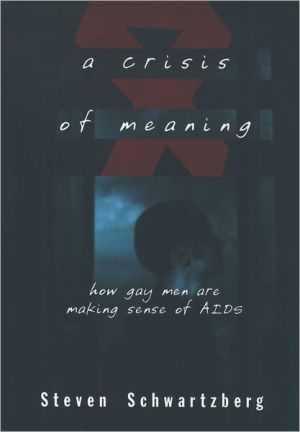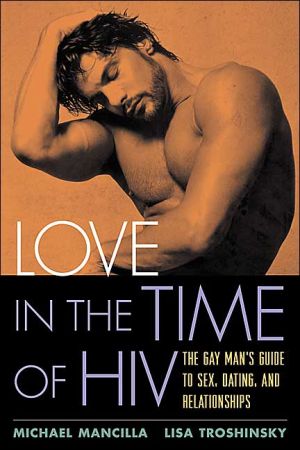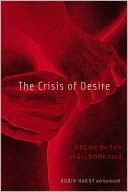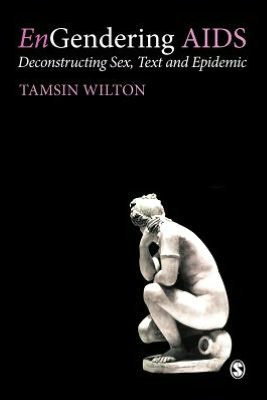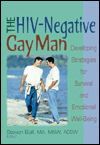A Crisis of Meaning: How Gay Men Are Making Sense of AIDS
For gay men, the demands of the AIDS epidemic are enormous and unrelenting. Regardless of HIV status, all are called on to maintain vigilant safety with sex, to face down a cultural stigma greater even than homophobia, and to somehow find a way to go forward in a world heavy with loss. As exhaustion and grief threaten to overwhelm the activism and optimism of earlier years, and with new infections on the rise among young gay men, the challenge of finding meaning in a world turned upside down...
Search in google:
For gay men, the demands of the AIDS epidemic are enormous and unrelenting. Regardless of HIV status, all are called on to maintain vigilant safety with sex, to face down a cultural stigma greater even than homophobia, and to somehow find a way to go forward in a world heavy with loss. As exhaustion and grief threaten to overwhelm the activism and optimism of earlier years, and with new infections on the rise among young gay men, the challenge of finding meaning in a world turned upside down is more than an idle philosophical exercise. It is a matter of psychological and perhaps even physical survival. In this poignant and uncompromising new book, Dr. Steven Schwartzberg offers a ground-breaking perspective on how gay men (and particularly HIV-positive gay men) find ways to rebuild a world of meaning amid the trauma and uncertainty of the AIDS crisis. Eschewing both glib prescriptions for turning tragedy into triumph, and theoretical abstractions, Schwartzberg grounds his insights in his own experiences as a gay man and as a practicing psychotherapist, and in in-depth interviews with nineteen men living with HIV. Ranging in age from twenty-seven to fifty, the men include a construction foreman, a physician, an art historian, a waiter, a librarian, and a licensed massage therapist. With candor, insight, eagerness, and a remarkable ability to share of themselves, they speak eloquently about how HIV has affected their views of the world, their senses of themselves, and how they live their lives. Interweaving the men's stories with observations from his research and clinical practice, Schwartzberg bears witness to the remarkable transformations some men have accomplished, and the anguish of meaninglessness that weighs others down. He strives to uncover why some view HIV as a catalyst for change or growth, while others see it only as punishment. And though he passes no judgment on the coping strategies he describes, Schwartzberg does insist on the vital necessity of balancing somber reality with healing, life-sustaining hope. He argues that men who opt for too much illusion and too little reality risk shoddy self-care and inadequate preparation for the future, while those who find no escape from reality may teeter into rage or suicidal despair. Beautifully written, with piercing awareness of the enormity of the challenges confronting individuals with HIV, this book celebrates the resilience of the human spirit. It is both a keen psychological guide and an elegiac chronicle of what life for many has become. Gently pointing the way to an oasis of growth, strength, and love that exists amid the epidemic's bleak terrain of loss, it is essential reading for people living with HIV, for their friends, families, and the mental health professionals who care for them, and for all gay men grappling with the enormous changes AIDS has brought to a community under siege. Booknews Based on his own experience as a gay man and clinical psychologist as well as traditional research and interviews, Schwartzberg (psychology, Harvard U.) offers perspectives on how gay men in general and especially those who are HIV-positive find ways to rebuild a world of meaning amid the trauma and uncertainty of the AIDS crisis. He queries why some find personal growth and others only anguish and despair. Annotation c. by Book News, Inc., Portland, Or.
1A Crisis of Meaning32Meaning: The Perennial Quest183Representations of HIV and AIDS: The Building Blocks of Meaning404Transformation: A Journey of Growth715Rupture: The Shattering of Meaning1016Camouflage: The Fine Line of Self-Deception1257Impassivity: Minimizing the Trauma1478Living with Uncertainty, Ambiguity, and Questions of Mortality1739Coping, Changing, Growing19010Grief and Hope208Epilogue: The Current Moment227Appendix AThe Men in the Study231Appendix BResearch Data236Notes241References253Index261
\ BooknewsBased on his own experience as a gay man and clinical psychologist as well as traditional research and interviews, Schwartzberg (psychology, Harvard U.) offers perspectives on how gay men in general and especially those who are HIV-positive find ways to rebuild a world of meaning amid the trauma and uncertainty of the AIDS crisis. He queries why some find personal growth and others only anguish and despair. Annotation c. by Book News, Inc., Portland, Or.\ \ \ \ \ Kirkus ReviewsA salutary study—slightly overwhelmed by its enthusiasm for the theoretical—of strategies for meeting the "crisis of meaning" triggered by an HIV-positive diagnosis.\ Schwartzberg is a psychologist, and the book is clearly shaped by his clinical scruples and animated by the intermittent presence of 19 HIV-positive gay men he interviewed for the research component of his recent doctoral training. His study explores the search in the gay community to find some meaning in the AIDS epidemic, while concentrating on the behavior of individuals living in extremis. Schwartzberg identifies four categories of individual adaptation in those afflicted: Transformation, the optimal mode, wherein "logical somersaults" are respected as the price of maintaining meaning; Rupture, the reverse, when every element of one's life seems to fall apart; Camouflage, or self-deception, the shakiest position, marked by a desperate juggling of truth and illusion; and Impassivity, a more constitutional than situational response, of which inattention to reality is both cause and effect. The 19 subjects function as springboards and exemplars for the discussion (the profiles being too sketchy to resonate as case histories, and too few to aspire to statistical significance); Schwartzberg reports nonjudgmentally on their individual strategies and wisely recognizes that different choices reflect different thresholds of tolerance—for grief, anxiety, ambiguity. In elucidating more broadly the response of the gay community to the AIDS epidemic, Schwartzberg, who is gay, brings a proud, concerned personal perspective to bear. He defines the response as three- phased, disbelief followed first by action and then by grief overload, and ends by making a strong case for managing the cumulative grief communally.\ Ultimately, a textbookish but nonetheless supportive, enlightened study.\ \ \
